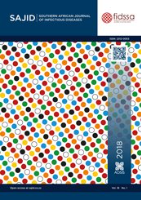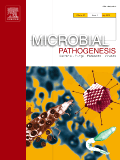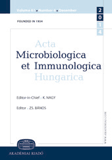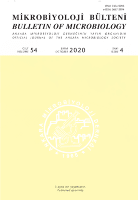
Surgical Infections
Scope & Guideline
Fostering interdisciplinary dialogue on infection prevention.
Introduction
Aims and Scopes
- Infection Prevention and Control:
Research focusing on strategies to prevent surgical site infections (SSIs) through various protocols, guidelines, and innovative practices such as antibiotic prophylaxis, preoperative skin preparation, and use of negative pressure wound therapy. - Microbial Pathogen Identification and Resistance:
Studies that explore the spectrum of pathogens involved in surgical infections, their antimicrobial resistance patterns, and the implications for treatment strategies, including the emergence of multi-drug-resistant organisms. - Outcomes of Surgical Procedures and Infections:
Investigations into the clinical outcomes related to surgical infections, including morbidity and mortality rates, factors influencing surgical site infections, and patient recovery trajectories. - Novel Diagnostic and Therapeutic Approaches:
Research on new diagnostic tools, biomarkers, and treatment modalities for surgical infections, such as machine learning applications in diagnosis and novel antimicrobial agents. - Quality Improvement in Surgical Infection Management:
Studies aimed at evaluating and improving quality of care related to surgical infections, including the implementation of evidence-based protocols and assessment of compliance with guidelines.
Trending and Emerging
- Impact of COVID-19 on Surgical Infections:
Research focusing on the implications of the COVID-19 pandemic on surgical practices, infection rates, and outcomes has surged, highlighting the need to understand how viral infections intersect with surgical procedures. - Antimicrobial Stewardship and Resistance:
There is an increasing emphasis on studies related to antimicrobial stewardship, assessing the effectiveness of different antibiotic regimens and the management of antibiotic-resistant infections in surgical settings. - Integration of Technology and AI in Infection Management:
Emerging themes include the application of machine learning and artificial intelligence to improve diagnostic accuracy and treatment strategies for surgical infections, showcasing innovation in the field. - Social Determinants of Health and Surgical Outcomes:
Research exploring the influence of social determinants on surgical infection outcomes has gained traction, reflecting a broader understanding of health disparities and their impact on surgical care. - Quality Improvement Initiatives:
There is a growing trend towards quality improvement projects aimed at reducing surgical site infections, with a focus on implementing evidence-based strategies that enhance patient safety and care quality.
Declining or Waning
- Traditional Antibiotic Prophylaxis Studies:
Research centered solely on traditional antibiotic prophylaxis regimens has decreased, possibly as a result of evolving practices and the increasing focus on more comprehensive infection control strategies. - Single-Center Studies:
There has been a noticeable decline in the publication of single-center studies, with a shift towards multicenter and larger cohort studies that enhance the generalizability of findings. - Basic Epidemiological Studies:
The frequency of basic epidemiological studies focusing solely on infection rates without deeper analysis or interventions has waned, as the field moves towards more complex analyses involving multifactorial influences on infection outcomes. - Historical Perspectives and Reviews:
The prevalence of historical reviews or perspectives on surgical infections has diminished, with more emphasis now placed on original research and contemporary approaches to infection management. - Non-Surgical Infection Contexts:
Research addressing infections that are not directly related to surgical interventions has decreased, as the journal's focus sharpens on surgical-specific infections and their management.
Similar Journals

Arthroplasty
Exploring the frontiers of arthroplasty and orthopedic science.Arthroplasty, published by BMC, is a prestigious open-access journal dedicated to disseminating cutting-edge research in the fields of orthopedics and sports medicine, as well as surgical advancements. Since its inception in 2019, this journal has rapidly established itself as a leading platform for scholars and clinicians alike, with a remarkable position in the 2023 category quartiles—ranking Q2 in Orthopedics and Sports Medicine and Q1 in Surgery. Based in the United Kingdom, at CAMPUS, 4 Crinan St, London, the journal promotes unrestricted access to valuable research findings, fostering a collaborative environment for professionals aiming to improve surgical outcomes and patient care. With its current Scopus ranks of #250 in Medicine (Surgery) and #180 in Medicine (Orthopedics and Sports Medicine), Arthroplasty is an essential resource for researchers, professionals, and students aiming to remain at the forefront of their fields. As the journal continues to evolve over the converged years from 2019 to 2024, it remains committed to enhancing the quality and accessibility of orthopedic research.

Southern African Journal of Infectious Diseases
Enhancing accessibility to essential health research.Southern African Journal of Infectious Diseases is a pivotal platform for the dissemination and advancement of research in the field of infectious diseases, with a particular focus on issues significant to the Southern African region. Published by AOSIS, this Open Access journal has been committed to providing accessible scholarly content since 2016, enabling researchers and practitioners to stay updated with the latest developments in infectious disease epidemiology, prevention, and management. With the ISSN 2312-0053 and E-ISSN 2313-1810, the journal invites submissions that explore diverse topics, including but not limited to clinical studies, public health policies, and innovative treatment methodologies. The Southern African Journal of Infectious Diseases is an essential resource for academics, professionals, and students dedicated to combating infectious diseases and improving health outcomes in the region, fostering a collaborative approach to research and knowledge sharing.

Journal Of Bone And Joint Infection
Exploring breakthroughs in the treatment of osteoarticular infections.Journal of Bone and Joint Infection, published by COPERNICUS GESELLSCHAFT MBH, is a pioneering open-access journal dedicated to the multidisciplinary field of bone and joint infections. Since its inception in 2016, it has served as a vital platform for researchers and practitioners to share cutting-edge findings, clinical practices, and innovative research methodologies from around the globe. Based in Germany, this journal has quickly established itself with a significant impact, currently holding a Q3 placement in Infectious Diseases and Q2 in both Orthopedics & Sports Medicine and Surgery, alongside commendable Scopus rankings. With the aim of advancing knowledge and fostering collaboration in the treatment and understanding of osteoarticular infections, the journal invites submissions that contribute to the scientific community's quest for effective management strategies and improved patient outcomes. The open-access format ensures that groundbreaking research is readily accessible, promoting wider dissemination and visibility within the community. As the Journal of Bone and Joint Infection continues through its converged years (2016-2024), it remains committed to supporting ongoing education and innovation in this critical area of medical research.

MICROBIAL PATHOGENESIS
Illuminating the Pathways of Infection and HealthMICROBIAL PATHOGENESIS, published by Academic Press Ltd - Elsevier Science Ltd, is a prominent journal in the fields of Infectious Diseases and Microbiology, with a notable impact factor and classified in the Q2 quartile for both categories as of 2023. Since its inception in 1986, this journal has provided a platform for the dissemination of cutting-edge research that enhances our understanding of microbial infections and their implications in health and disease. The journal is indexed in Scopus, ranking #80 among 344 in Infectious Diseases and #57 among 182 in Microbiology, underscoring its significant contribution to the scientific community. Although it operates under a traditional subscription model, the content is vital for researchers, professionals, and students focused on the dynamics of microbial pathogenesis and the development of innovative therapeutic strategies. The journal's comprehensive scope aims to foster advancements in this critical area of study, bridging the gap between laboratory research and clinical applications.

ACTA MICROBIOLOGICA ET IMMUNOLOGICA HUNGARICA
Fostering collaboration in infectious disease research.ACTA MICROBIOLOGICA ET IMMUNOLOGICA HUNGARICA is a distinguished academic journal published by AKADEMIAI KIADO ZRT, focusing on significant advancements in the fields of microbiology, immunology, and infectious diseases. Established in 1994, this journal serves as a vital platform for researchers, professionals, and students keen on exploring the complexities of microbial interactions and immune responses. With a current Impact Factor reflecting its rank within the Q3 categories for Immunology, Microbiology, and Infectious Diseases, it retains a critical position in disseminating innovative research. Although not open access, the journal provides extensive insights disseminated through various academic databases, ensuring a broad reach within the scholarly community. Its convergence over three decades indicates a robust commitment to excellence in scientific inquiry and knowledge sharing. As it moves towards the future, ACTA MICROBIOLOGICA ET IMMUNOLOGICA HUNGARICA continues to uphold its legacy of fostering collaborative research initiatives that contribute to the understanding and treatment of microbial diseases globally.

International Journal of Microbiology
Connecting Researchers Across Borders in MicrobiologyWelcome to the International Journal of Microbiology, a premier platform dedicated to the dissemination of cutting-edge research in the field of microbiology. Published by HINDAWI LTD, this open-access journal has been making significant strides since its inception in 2009, ensuring that high-quality research is accessible to all. Situated in Egypt, the journal caters to an international audience, fostering collaboration across borders. With a commendable impact factor and recognized in the Q2 category for both general and medical microbiology, it ranks 48th out of 182 and 40th out of 140, respectively, according to Scopus statistics, placing it among the top-tier journals in its field. The International Journal of Microbiology publishes articles that explore various aspects of microbiology, from fundamental studies to applied research, thus contributing significantly to advancements in medical, agricultural, and environmental microbiology. This journal is an essential resource for researchers, professionals, and students eager to stay at the forefront of microbiological studies and their applications.

International Journal of Antimicrobial Agents
Pioneering Insights into Antimicrobial Efficacy and SafetyInternational Journal of Antimicrobial Agents, published by Elsevier, stands as a premier platform in the fields of Infectious Diseases, Microbiology, and Medical Pharmacology. With an impressive impact factor and ranked in the Q1 category across multiple medical disciplines in 2023, this journal is recognized for its contribution to advancing knowledge and understanding in the efficacy and safety of antimicrobial treatments. Its comprehensive scope from 1991 to 2024 allows for the publishing of original research, reviews, and commentary on pressing issues related to antimicrobial resistance, treatment strategies, and pharmacological innovations. With a strong emphasis on high-quality research as reflected in its Scopus rankings, the journal is an essential resource for researchers, clinicians, and students dedicated to improving patient outcomes in the face of evolving microbiological challenges. Engage with the latest findings and methodologies through this vital academic resource, available in print and online, from the heart of the Netherlands.

Klimik Journal
Bridging Theory and Practice in Infectious Diseases.Klimik Journal is a pivotal publication in the fields of Infectious Diseases and Medical Microbiology, serving as a platform for researchers, clinicians, and academics to disseminate groundbreaking findings and improve health outcomes. Established in 2010 and published by DOC DESIGN INFORMATICS CO LTD, this journal is dedicated to advancing knowledge and fostering discussions around critical issues in infectious diseases and microbial research. With an ISSN of 1301-143X and an E-ISSN of 1309-1484, Klimik Journal strives to maintain high academic standards despite currently ranking in the fourth quartile in both categories according to Scopus metrics, which highlights the need for continued contributions to the field. Operating from Turkey, the journal is committed to supporting open access options, thereby ensuring wide dissemination of research findings. As it continues to bridge the gap between theory and practice, Klimik Journal is poised to become an essential resource for those looking to stay at the forefront of infectious disease research and microbiological advancements.

Frontiers in Cellular and Infection Microbiology
Pioneering research for a healthier tomorrow.Frontiers in Cellular and Infection Microbiology, published by FRONTIERS MEDIA SA, is a leading Open Access journal that has been at the forefront of microbiological research since 2011. Located in Switzerland, this journal aims to provide a platform for innovative and impactful studies in various domains including immunology, infectious diseases, and medical microbiology. With an impressive range of quartile rankings—Q1 in Infectious Diseases, Microbiology, and Microbiology (medical), and Q2 in Immunology—as of 2023, it positions itself as a highly reputable source in the academic community. Furthermore, its Scopus rankings highlight its significance within the respective fields, with top percentiles in key categories, making it an essential resource for researchers, professionals, and students alike. As an Open Access publication, it ensures that vital findings are accessible to a global audience, fostering collaboration and advancement in science.

MIKROBIYOLOJI BULTENI
Elevating Scientific Discourse in MicrobiologyMIKROBIYOLOJI BULTENI, with ISSN 0374-9096, is a prestigious academic journal published by the ANKARA MICROBIOLOGY SOC, located in Ankara, Turkey. Established in 1973, this journal has been a vital conduit for disseminating research in the fields of Immunology, Microbiology, and Infectious Diseases, garnering a reputation as a significant contributor to the scientific community. The journal is currently ranked in the Q3 category within Immunology and Microbiology (miscellaneous), and Infectious Diseases, indicating its impactful presence amidst contemporary research. With access options that may be restricted, MIKROBIYOLOJI BULTENI actively welcomes submissions that advance the understanding of critical microbiological principles and practices, thereby supporting both national and international research efforts. Researchers, professionals, and students are encouraged to explore the latest findings shared in this journal, as it continually shapes the landscape of microbiology and infectious disease studies through its comprehensive and rigorous peer-reviewed publications.